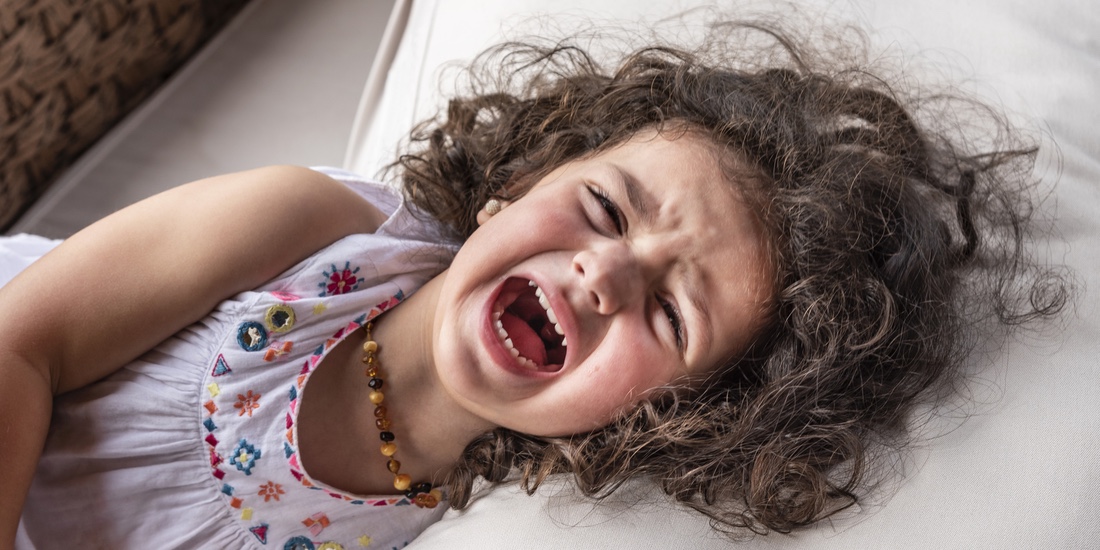By learning why young children hit – learning what is developmentally going on in their brains when they hit – we are able to more effectively guide our response and support their emotional needs. Let’s get to the root of your most frequently asked questions on this topic.
Learn
Is It Normal to Hit?
- Very normal. Most children go through phases of hitting and testing limits in some way or another. For some children it lasts longer than others.
Why Do Preschoolers Hit?
‘Hitting’ is just another form of ‘acting out’ and may result in a tantrum. As one can imagine, there are many reasons for ‘acting out’.
- Big emotions – This is often the primary reason. Most young children do not have the verbal ability to communicate their feelings yet. Young children feel their emotions in immediate and incredibly strong ways that feel very real to them.
- Testing limits – Children (3 years and older) are looking for how they can influence the world, and how the world changes based on their actions. Hitting/physical behavior is just one of the ways they test their hypotheses.
- For example, imagine a 3-year old’s thought bubble, “What happens when I hit mom? What does she say/do? Is that the same reaction ‘every single time’? Is the reaction the same when I do it at school/home/grocery store? Is the reaction the same when I do it to dad/grandma/friend?” All of these thoughts may whiz through a 3-year old’s brain in one swell punch.
- Life changes – In general, any changes to people and places that help a child feel secure and consistent may cause disruption to their behavior (e.g., relocating, welcoming a new sibling into the family, changing schools, introducing a new caregiver, etc.).
- Changes to routines – Unpredictable changes that do not allow for a young child to know or expect what is happening next.
What Is a Child Trying to Communicate When They Hit?
Physical outbursts are often a mode of communication for young children; they do not yet have the vocabulary to articulate the nuances of their feelings. When they hit, they may be trying to say:
- “I’m uncomfortable!”
- Frustrated or angry.
- Hungry or tired.
- Needing boundaries/feeling out of control.
- Something feels unsafe or confusing (a parent or peer’s reaction; a new situation).
- Overstimulated (too much is going on and they cannot regulate themselves).
- “I’m excited!” or “I’m silly!”
- Sometimes excitement or silliness comes out physically because young children lack impulse control.
What Is Happening in Their Brains Cognitively that Makes Them Hit?
When hitting occurs, there is a disconnect / dis-integration in the brain.
- There is a disconnect between the right and left sides of the brain and the ‘upstairs’ (sophisticated: planning, thinking, imagining) and ‘downstairs’ (primitive: reactive, strong emotions) parts of the brain. This idea comes from Dr. Dan Siegel and Dr. Tina Payne Bryson’s book, The Whole-Brain Child.
- Children (3 years and younger) are dominated by the right side of the brain (the nonverbal, emotional, intuitive side of the brain). They live in the moment.
- For young children, the sophisticated upstairs brain is not yet fully developed (and will not be for many years). We often expect children to control themselves in ways that are developmentally impossible.
- The amygdala (the tiny part of the limbic area in the primitive downstairs brain) is in charge of quickly processing and expressing emotions. When fear, anxiety or anger are felt, the amygdala often takes over and children cannot act in a calm way.
What Does It Mean If My Child Hits First and Then Laughs (or Cries)?
- Contrary to how it appears, this is usually a sign that a child is feeling uncomfortable with the situation.
- The child recognizes that what they did caused a (likely) negative reaction in another person. They probably do not feel good about what they have done and they are often aware that their actions did not feel good to the other person.
- When a child hits, they are typically not seeking to ‘hurt’ someone else. So when they do, it can feel uncomfortable to them, especially if their adult has an emotional reaction to it. For a young child, watching their grown-up get to that emotional place can feel scary and out of control. Hence, the laughter (or outburst of tears.)
When Will It Stop?
- Physical behavior can manifest for many reasons, so hitting and testing limits will likely arise throughout a child’s early years in different ways.
- When it stops is uniquely dependent on the development of each child and how their grown-ups respond to the hitting.
